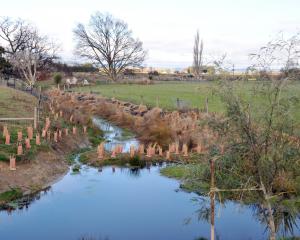On making some inquiries on Monday morning an Auckland Star reporter ascertained that the practice of tipping is not much in favour with the stewards.
''We don't like having to crawl to a passenger for the sake of a shilling or two,'' said one man, ''but up till now we've had to do it. A steward has to be well dressed and keep up a good appearance, and that costs money.''
The reporter learned that it has been the custom for the stewards on each boat (at least in the case of the Union Company's vessels) to pay all tips into a pool, which is divided up at the end of the trip, first class stewards taking a double share as compared with second class stewards.
This practice has not always given satisfaction as there is very little protection against the man who does not ''play the game'', by paying in all he gets.
It is generally considered that the increased wages will more than make up for the abolition of tips, as first class stewards are now to get £8 a month instead of £5 10s, and second class £6 10s a month instead of £4.
The stewards themselves feel that the no tip system is fairer to everybody concerned - themselves, the passengers, and the steamship companies.
''The passengers will get just the same attention,'' said one of the men, ''have no fears about that.''
• The following ''tips for the front'' are handed on by ''Sentry'': More disease is spread by impure water than by anything else. It may be crystal clear in appearance, and yet contain deadly germs. Unless drinking water can be obtained from the service filter water carts, boil it.
In examining tinned food it should always be noted if the tin is bulged or ''blown''.
If an infantry soldier, don't ''Overclothe''. Avoid waterproof and air proof under garments. They prevent the evaporation of perspiration. Woollen underclothes are the best. They prevent too rapid cooling of body from excessive external cold.
As much rest as possible should be obtained when ''off duty''.
''Those who sleep longest go furthest.''
Clean feet, well fitting boots and socks, are essential to prevent footsoreness. The feet should be washed every day, or, if facilities are not available, wiped with a wet cloth.
Socks, after being dried, should be put on the opposite feet. Blisters should be pricked at the margin with an absolutely clean needle, and tender parts should be covered with soap.
Socks soaked in castor oil and worn in boots that are hard will quickly make the latter comfortable. Bathe whenever possible, and keep the skin clean by hand friction and wiping with a wet cloth, when a bath is not possible.
A dry mouth is no indication that the body requires liquid. Constant drinking when on the march is injurious, and self discipline should be practised.
Water bottles should be ''boiled out'' once a week. A canteen of water can be boiled over the flames from three pieces of candle, or by the flame from a piece of rag stuck into a tin of vaseline.
• Bald Hill Flat, which is now generally known as Fruitlands, is fast becoming transformed in appearance under the practical management of Messrs Ivory, of Rangiora nursery fame.
Mr Ivory has 14 employees fencing, irrigating, and tree planting; also 19 horses ploughing, etc. The fences are of a substantial nature. A large area of land is ready for tree planting, which was begun on Wednesday. The syndicate is to be congratulated on its scheme.
Two hundred acres are to be planted this season, over 25,000 fruit trees being provided by the Rangiora Nursery. Mr Ivory has everything going like clockwork, and is turning a wilderness into fruitful plains. The question of putting a large area of land in grain is being considered by the company.
- ODT, 13.7.1915.











